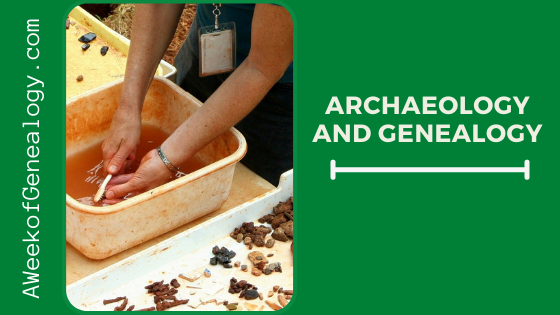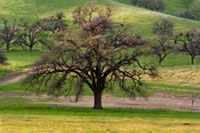Archaeology and Genealogy

This past semester I took an introductory class in archaeology. Archaeology is part of anthropology, so the class involved more than digging. I learned that archaeology was one of the four branches of anthropology, with the other three being: Physical (Biological) Anthropology, Cultural Anthropology and Linguistic Anthropology.
Archaeology and genealogy share some similarities. Like genealogy, archaeology looks at peoples and their cultures through the physical things that they leave behind. Historical archaeology is most like genealogy because it covers the time of recorded history.
Archaeology borrows three principles from geology: the Archaeologists use principles from geology to determine time frames of artifacts: the Principle of Superposition, the Principle of Association, and the Principle of Strata Identified by Fossils/Artifacts.
The Principal of Superposition is where the oldest artifacts are at the bottom. Just as genealogists begin with themselves and work backwards to older ancestors, an archaeologist digs through layers, from newest to oldest and the story is the sum of those layers
The Principle of Association means the materials that are close together are of similar age. This reminds me of the collateral relatives that genealogists research to find answers, and cluster research.
Principle of Stratification lets archaeologists estimate the age of artifacts by the layers in which they are found. Genealogists dig through the layers of each generation to find their ancestors and families.
Digging a site is a destructive process, where genealogy is constructive. Genealogical work is similar to archaeology in the way that it uncovers the artifacts that are combined with their context to build the story of how people lived and moved through their space. Unlike genealogy, digging a site is destructive. Once a site has been excavated, it is destroyed. (It may be possible to virtually reconstruct a site through the use of technology.) Similar to genealogy, when little is known about an ancient culture, archaeologists begin with what is known about the present and work backwards.
Context is incredibly important in archaeology. Having an artifact without understanding where it was found and what was around it robs it of most of its value. The context of our ancestors’ lives is what gives our work its value. Understanding their lives and times, the challenges they faces is the richness on genealogy.
Next semester on to Physical Anthropology which promises to discuss inheritance and DNA testing.
Be a family history archaeologist and uncover the stories of your ancestors!



